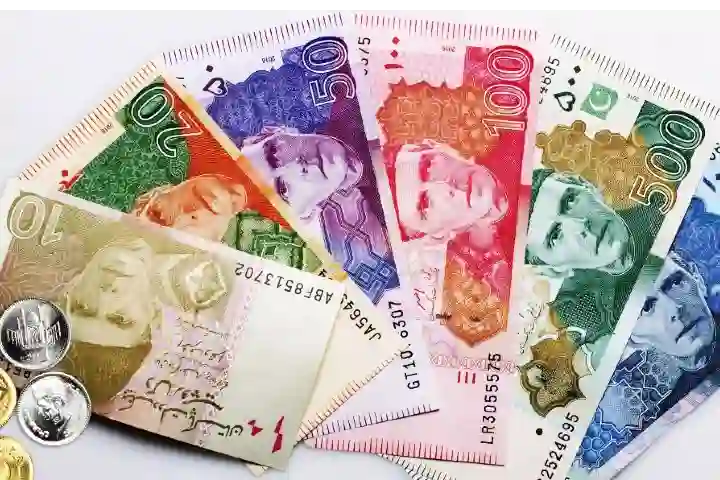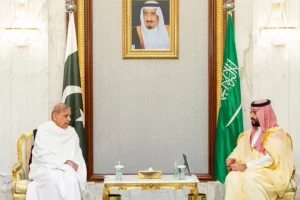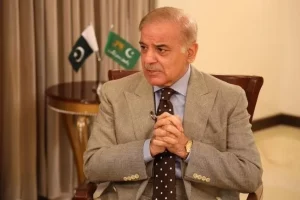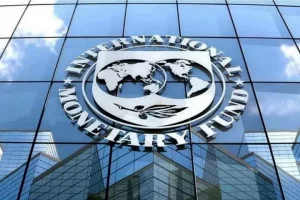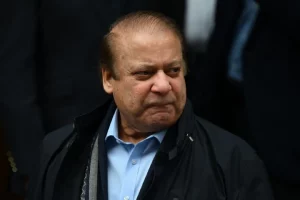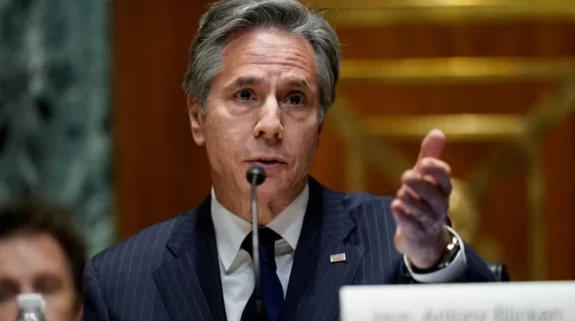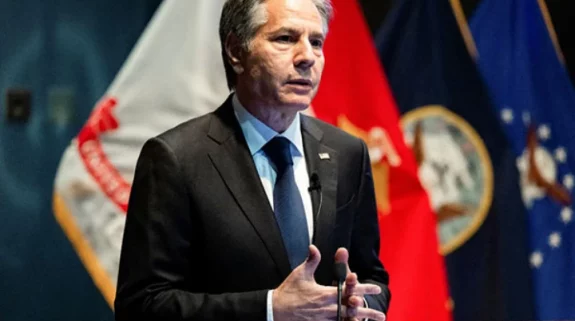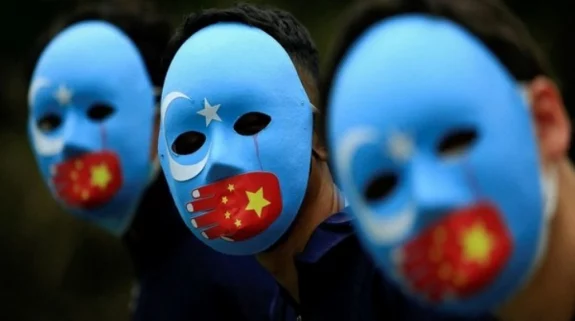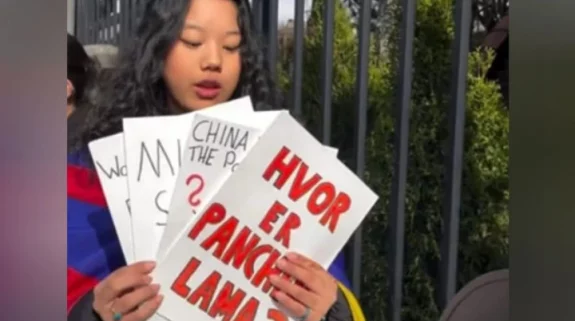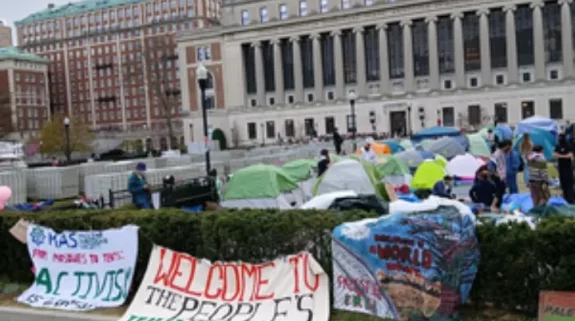Pakistani Prime Minister Shehbaz Sharif left for Paris, France, on Wednesday afternoon with a request to meet International Monetary Fund (IMF) managing director Kristalina Georgieva to persuade her to release bailout funds amounting to $2.7 billion which expire on June 30.
It is not yet confirmed if the IMF MD has agreed for a meeting.
Even as the Pakistani media has reported on the possible meeting widely, the Ministry of Foreign Affairs statement on Sharif’s visit to France does not indicate about Sharif meeting with Georgieva.
Prime Minister Muhammad Shehbaz Sharif departing from Islamabad to attend the New Global Financing Pact Summit in Paris, France. Islamabad, June 21, 2023. pic.twitter.com/ZgosWOjh65
— PMLN (@pmln_org) June 21, 2023
Sharif flew to Paris to attend the upcoming New Global Financing Pact Summit being held in Paris from June 22-23. On Monday, an embattled Sharif had met with the ambassadors of more than half-a-dozen nations to request them to break the IMF-Pakistan stalemate.
Islamabad, which is on the verge of a default, has been in talks with the IMF since November 2022 for the release of $1.1 billion – a part of the $6.5 billion bailout agreement signed by former prime minister Imran Khan’s government with the IMF in 2019.
IMF has held back the last tranche of the payment owing to Pakistan’s intransigence over fiscal and budgetary reforms. Though Finance Minister Ishaq Dar has been in regular touch with IMF officials and Sharif has earlier spoken with Georgieva, besides communicating with her through letters, no breakthroughs have been achieved.
Sharif, however, has said that Pakistan has met all conditions by the IMF months ago.
On the economic front, Pakistan is battling shortage of food, high inflation, low foreign exchange reserves as foreign companies make a quick exit from the country.
Owing to low foreign exchange reserves, international airlines are reducing flying operations to the country. With difficulty in repatriating cash, foreign airlines like Emirates, Turkish and Saudia have cut down on flights to the country.
British airline Virgin Atlantic had announced earlier during this year that it would be winding down operations completely.
The economic turmoil has hit the automobile industry hard.
Earlier this week, the country’s largest car-maker, Pakistan Suzuki Motor Company (PSMCL) announced the shutdown of its automobile and motorcycle plants, due to “shortage of inventory levels”. The company had suffered massive losses as it had to observe no production days every month owing to shortage of raw materials.
In a similar manner, Toyota had stopped production temporarily due to disruption in supply chains and inventory shortages. It also said that vendors were not able to supply raw materials and components. This was the second time that the company had to shut down operations due to problems in the local economy.
But the biggest news to trickle from the South Asian country was the exit of oil giant Shell. The company sold off 77 per cent shareholding after it suffered losses due to the devaluation of the Pakistani rupee and mounting dues.
In such bleak times, fast-friend China has rushed in to support a beleaguered Pakistan. Last Friday, the State Bank of Pakistan confirmed that Beijing had provided $1 billion to boost the country’s falling foreign exchange reserves. Even before China provided the much-needed forex, Finance Minister Ishaq Dar had announced that Pakistan was expecting the money as it had paid $1 billion in dues to China a week earlier and wanted the money to shore up its reserves.
On top of returning the $1 billion, China made additional investments of $4.8 billion in Pakistan’s nuclear energy sector, prompting Prime Minister Sharif to burst out in a poetic: “…our friendship is higher than the Himalayas, deeper than the deepest ocean, sweeter than sugar and honey, and stronger than iron and steel”, about China-Pakistan relations and President Xi Jinping.
Irrespective of IMF support, the bailout would only suffice for a couple of months. Pakistan has to repay million of dollars in debt to China this month besides another $4 billion between July and December 2023.






